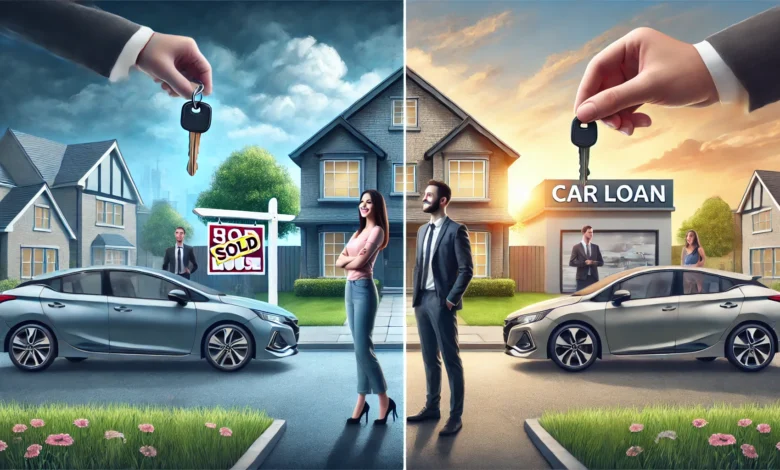How Soon Can I Get a Car Loan After Closing on a House? Key Tips & Timing Explained

Closing on a house is a major financial milestone. But once you’ve achieved it, another important question often arises: how soon can I get a car loan after closing on a house? Timing is crucial, as it can affect both your credit standing and your ability to get favorable loan terms. This article will guide you through the factors that play into getting a car loan post-mortgage, the best time to do so, and how to enhance your approval odds.
Understanding the Basics
Impact of Mortgage on Credit and Finances
When you close on a house, your financial profile changes significantly. A mortgage is a large debt, and it can impact your credit score, debt-to-income ratio, and your ability to secure additional loans. Lenders look closely at these factors when determining eligibility for a car loan. Your credit score may dip after the mortgage is reported, and your debt-to-income ratio will likely rise, making lenders more cautious.
It’s essential to understand that these changes aren’t necessarily negative but can play a role in how quickly you’ll be approved for a car loan and what interest rate you’ll be offered.
Factors Affecting Approval for a Car Loan
When applying for a car loan, lenders focus on a few key elements:
- Credit Score: A recent mortgage might reduce your score slightly, but paying the mortgage consistently can improve your score over time.
- Debt-to-Income Ratio (DTI): This is the amount of debt you have compared to your income. A new mortgage increases your DTI, which might make it harder to qualify for additional loans.
- Down Payment & Income: A steady income and a larger down payment can make you more attractive to lenders, even after closing on a house.
If you’re wondering how soon can I get a car loan after closing on a house, it’s crucial to weigh how these factors will impact your ability to get a good deal.
Timing and Considerations
How Soon is Too Soon?
It’s generally advised to wait at least a few weeks to a couple of months after closing on a house before applying for a car loan. This time frame allows your credit score to stabilize after the initial dip from the mortgage. Lenders typically like to see a steady payment history on your new mortgage before approving another loan. This doesn’t mean you can’t apply right away, but you may face higher interest rates or stricter terms if you do.
Waiting a bit longer can be beneficial for several reasons:
- Improvement in Credit Score: As you start making consistent mortgage payments, your credit score will improve, which can lead to better car loan terms.
- Debt-to-Income Ratio Stabilizes: Your DTI may appear more favorable after you’ve had a few months of stable mortgage payments.
Pros and Cons of Getting a Car Loan Right After Closing
- Pros:
- You might need a car immediately for commuting or other purposes.
- Locking in an interest rate early can be beneficial, especially if market rates are low.
- Cons:
- Higher Interest Rates: Lenders might see you as a riskier borrower right after a mortgage, leading to higher interest rates.
- Potential Rejection: The recent mortgage could make your DTI appear unfavorable to some lenders.
Emphasize Key Considerations: It’s crucial to weigh these pros and cons when deciding how soon can I get a car loan after closing on a house. While the need for a vehicle may be pressing, waiting can improve your chances of securing a better loan.
Strategies to Improve Approval Odds
Improving Your Financial Profile
Even if you choose to get a car loan right after closing on a house, there are steps you can take to increase your chances of approval:
- Pay Down Other Debts: Reducing credit card balances or other loans can improve your DTI.
- Avoid New Credit Inquiries: Try not to open new lines of credit before applying for a car loan. Each inquiry can slightly reduce your credit score.
- Increase Your Down Payment: A larger down payment can offset some of the risks lenders may associate with your recent mortgage.
Choosing the Right Car Loan
It’s also important to find a car loan that fits your financial situation. Consider options like:
- Secured vs. Unsecured Loans: A secured loan (using the car as collateral) may offer lower interest rates, while unsecured loans could be riskier but may not affect your other assets.
- Loan Terms: Look for a lender who offers flexible terms and reasonable interest rates, especially considering your recent mortgage.
Frequently Asked Questions (FAQs)
Q: Will my mortgage affect my car loan interest rate? A: Yes, your mortgage can influence your car loan’s interest rate since it affects your credit score and debt-to-income ratio. Lenders may offer slightly higher rates if they view you as a higher-risk borrower due to the recent mortgage.
Q: Should I get pre-approved for a car loan before house closing? A: It’s possible, but not always recommended. Your financial profile can change significantly after closing on a house, which may affect the terms of the pre-approved car loan.
Q: How does closing on a house change my credit profile? A: Closing on a house typically lowers your credit score in the short term, as the new mortgage is a significant debt. Over time, making consistent payments can improve your credit score.
Conclusion
In summary, deciding how soon can I get a car loan after closing on a house depends on several factors, including your credit score, debt-to-income ratio, and how quickly you need a car. By waiting a few weeks or months, your financial profile will likely improve, increasing your chances of securing a favorable loan. However, if getting a car immediately is necessary, be prepared for potential challenges, such as higher interest rates.




